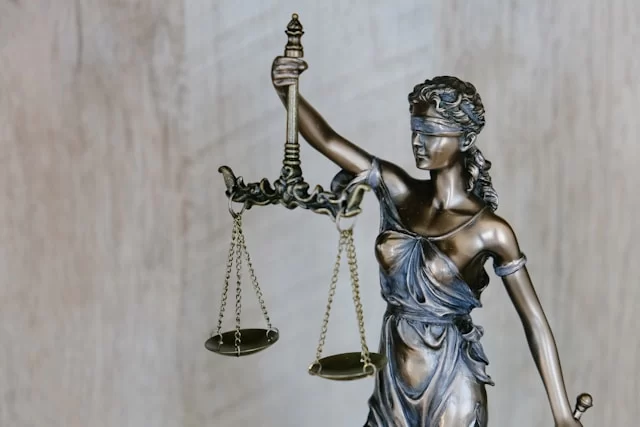- Understanding-Civil-Law-and-Personal-Disputes
- The-Legal-Process-for-Resolving-Personal-Disputes
- Methods-of-Civil-Dispute-Resolution
- Case-Study-a-Civil-Dispute-Resolution-Experience
- Professional-Legal-Support-in-Personal-Disputes
Understanding Civil Law and Personal Disputes
Civil law serves as the framework for resolving conflicts between individuals or organizations that do not involve criminal charges. When it comes to personal disputes, civil law provides the legal basis for settling disagreements related to contracts, property, family matters, and other non-criminal issues.
Unlike criminal law, which focuses on offenses against the state, civil law is designed to protect private rights and provide remedies such as compensation or specific performance. Recognizing this distinction helps clarify why the legal process for resolving personal disputes can be lengthy and nuanced, often requiring careful negotiation and legal intervention.
Scope and Importance of Civil Law
The scope of civil law is broad. It encompasses disputes ranging from landlord-tenant conflicts and breach of contract cases to family disputes such as divorce or child custody. These disputes affect daily life and can escalate quickly without proper resolution.
Understanding civil law's role in these matters empowers individuals to take appropriate steps when disputes arise, ensuring their rights are protected and the conflict is settled fairly.
The Legal Process for Resolving Personal Disputes
The legal process for resolving personal disputes under civil law typically follows a structured pathway. While details vary by jurisdiction, the core stages remain consistent:
1. Pre-Litigation Negotiation
Most civil disputes begin with attempts at negotiation or informal resolution. Parties communicate directly or through representatives to reach an agreement without resorting to court action. This step often saves time and costs.
2. Filing a Civil Complaint
If negotiations fail, the aggrieved party files a civil complaint or petition with the appropriate court. This legal document outlines the dispute's facts, claims, and the relief sought.
3. Service of Process and Response
The complaint must be formally delivered to the opposing party, who then files an official response or defense. This exchange marks the start of formal litigation.
4. Discovery and Evidence Gathering
Both sides collect and exchange evidence to support their claims or defenses. This phase can include depositions, interrogatories, and document requests.
5. Settlement Discussions and Alternative Dispute Resolution (ADR)
Many disputes resolve through mediation or arbitration before trial, often encouraged by courts to reduce burdens on the legal system.
6. Trial and Judgment
If no agreement is reached, the case proceeds to trial where a judge or jury examines evidence and renders a decision.
Methods of Civil Dispute Resolution
While litigation is the traditional path, alternative methods often provide faster and less adversarial solutions to personal disputes.
Mediation
A neutral mediator facilitates dialogue between parties to help them reach a mutually acceptable agreement. Mediation is confidential and voluntary, often preserving relationships better than court battles.
Arbitration
Arbitration involves a neutral third party who hears evidence and issues a binding or non-binding decision. It is more formal than mediation but usually quicker than a trial.
Negotiation
Direct negotiation remains the most flexible option. Skilled negotiation can result in creative solutions tailored to the parties’ specific needs.
Case Study: A Civil Dispute Resolution Experience
Consider the example of Mr. Johnson, who faced a property boundary dispute with a neighbor. Initially, tensions ran high, and informal discussions failed. Upon consulting Fred Miller Lawyer, he was guided through the legal process for resolving personal disputes.
With professional advice, Mr. Johnson filed a formal complaint but simultaneously pursued mediation. The mediator helped both parties clarify misunderstandings, leading to a fair compromise that avoided the stress and expense of a full trial.
This real-life scenario illustrates how blending legal process with alternative dispute resolution can yield efficient and amicable outcomes.
Professional Legal Support in Personal Disputes
Dealing with personal disputes under civil law can be challenging, especially when emotions run high and legal technicalities abound. Seeking professional help from experts like Fred Miller Lawyer ensures that your rights are effectively protected and that the legal process for resolving personal disputes proceeds smoothly.
Experienced lawyers bring clarity to complex cases, advise on the best strategies, and represent your interests whether in negotiation, mediation, or courtroom litigation. Their involvement increases the likelihood of a resolution that satisfies all parties involved.
Ultimately, understanding civil law and its mechanisms empowers individuals to handle personal disputes with confidence and achieve fair, lasting resolutions.


 8400 nw 36 st
8400 nw 36 st law offices of richard lasalle
law offices of richard lasalle kenneth montgomery attorney
kenneth montgomery attorney sarieh law offices alc
sarieh law offices alc linda kerns law
linda kerns law divorce lawyers centennial
divorce lawyers centennial